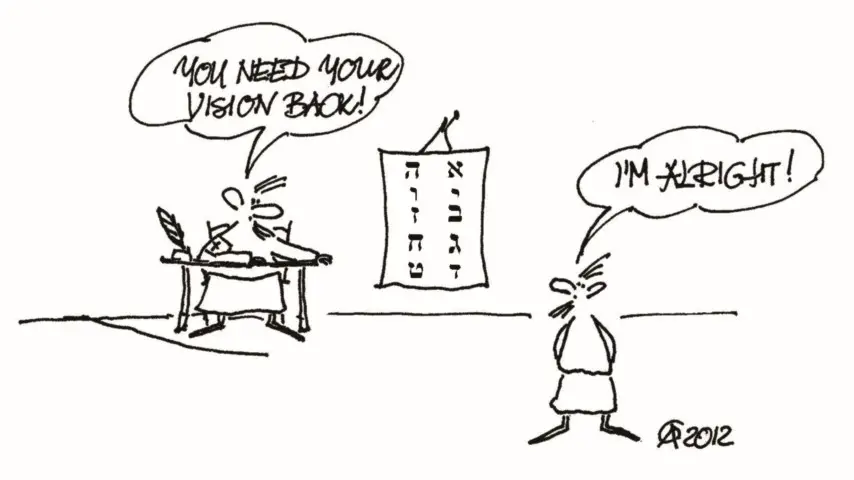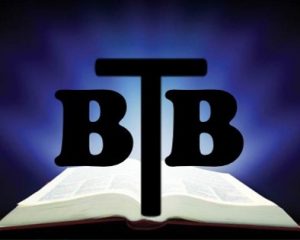Introduction To The Minor Prophet Malachi
This is book 12 in the Minor Prophets series. Copyright terms apply
The year is around 430 BC. The book of Malachi was written at a time of great frustration and disillusionment. Felt both by the Lord and the People of Israel.
Almost 90 years previous, the temple had been re-built by the exiles returning from the Babylonian captivity and now we have the ‘third wave’ of exiles led by Nehemiah. The Persian King Artaxerxes 1 gave permission for this group to return in 445 BC about 15 years previous to the writing of this book.
The situation is this – The temple has been re-built (516) the walls have been re-built (445), the priesthood has been re-established and sacrifices have re-commenced at the temple. They are reasonably secure from their enemies, all should be looking rosé!
And yet we have the reality of a corrupt priesthood (Mal 1:6-8,)who were accepting the poorest of the herd or flock for sacrifice – against the instructions of Leviticus 1v3 – and a people who had allowed themselves to submit to a ‘form of religion’ rather than the relationship that The Lord had called them to.
Intermarriage with the heathen tribes against the express command of God (Exodus 34:12-16) was also causing problems in the exact area that The Lord warned them off.
The whole nation, Priests included had allowed themselves to become disillusioned and cynical. The natural outcome of this state of mind leads to daily worship becoming something of a chore, a job that requires to be done – as soon as you can be bothered !
This all leads to the backslidden state that we find the nation of Israel in, and sets the stage for a Prophet of the Lord to give voice to God’s message…..

Brief Summary:
- Malachi begins by asserting Gods love and faithfullness to his people – even though they would say otherwise
- Apathy and unbelief are rife and God God uses Malachi to remind his people where God has been faithful even when they have not been
- Gods remins them that they have robbed Him by not giving up their tithes and offerings into the storehouse of The Lord
- The Day of the Lord is coming, and God will send the prophet Elijah before that day arrives
The Book of Malachi
What’s in a name? Malachi means “My Messenger”
There is some debate amongst the ‘learned’ but it is widely accepted that Malachi was not actually the name of an individual, but rather a title. He is mentioned nowhere else by name in the Bible and Josephus who mentioned all the other ‘players’ in this period makes no mention of Malachi.
The writing of the book is therefore widely attributed to Ezra.
To get a fuller picture of this period it is recommended that the books of Ezra and Nehemiah be read in full.
The book of Malachi is written in quite a unique way called ‘didactic’ also known as ‘disputation’, ‘assertion –objection—rebuttal ‘
The Lord through Malachi first makes an assertion to the people, an objection is then raised by the hearers, and finally a rebuttal or refutation is made by the speaker.
Example…Ch. 1; I have loved you,” says the LORD But you say, “How have You loved us?” “Was not Esau Jacob’s brother?” declares the LORD “Yet I have loved Jacob;
Through this method God chooses to break through the apathy and unbelief that has overcome the people. Always desiring a sinner to come to repentance the Lord throughout this book seeks to emphasise the danger that they are in if they stay on their present course.
God is merciful ;( Joel 2:12-14) (Rend your hearts and not your garments and return to the Lord, your God, for He is gracious and merciful, slow to anger, and abounding in loving-kindness; and He revokes His sentence of evil [when His conditions are met].
Through the mouth of Malachi The Lord persuades at least some of the people to repentance and they even put their name in a book of remembrance (3;16)
The book ends by calling the people to revive again the teachings of Moses and by promising that Elijah will return before the ‘day of the Lord’
It was another 400 years before The Lord spoke to his people again……..
John the Baptist was Elijah according to the teachings of Jesus I Matt:11:14 “if you are willing to receive and accept it, John himself is Elijah who was to come” [before the kingdom].

Applications for Today:
The people on their return to the ‘Promised land’ were set a great challenge, to re-build a ruined country.
After granted a fair amount of prodding they set about it and got on with the task of re-building the Temple and the city walls.
But look what happens when the task is completed.
- Boredom – We’ve done our job, now what?
- Apathy – let’s just do our religious duty then get on with real life!
- Rebelliousness – Look at our neighbours the Canaanites, they’re partying and having a great time of it !!
Proverbs 29:18 says ‘Where there is no vision, the people perish: but he that keepeth the law, happy is he.’
The NIV says –“Where there is no revelation, the people cast off restraint; but blessed is he who keeps the law”
The Lord knows that if we are not heading somewhere then we are going nowhere !!
We need purpose in our lives – we need the reality of God to rule in our lives and we need more than anything a God Given Goal a vision, a revelation, a dream that the Lord would plant in our hearts, we need to fulfil the destiny that The Lord has planned for us otherwise, like the people of Israel we will wander off into the sunset and slide into apathy and rebellion.
Last Point – people will often say of a church or individual that they have ”stagnated”, grown cold. I would suggest that in reality there is no such option for a christian; to ‘stagnate’ is to die for that is where it eventually leads.
Only by ‘pressing on towards the goal’ by ‘keeping the faith’, can we hope to get the very best out of this life that God has given us.

A Quick Rant!
Malachi is very often used by preachers to beat their people over the head, when it comes to tithing.
It can be fairly guarenteed for instance that any sermon that includes the subject of tithing to the Church will include this passage from Malachi 3:16 ”Bring the whole tithe into the storehouse, so that there may be food in My house, and test Me now in this,” says the Lord of hosts, “if I will not open for you the windows of heaven and pour out for you a blessing until it overflows.”
There are a number of things to note here,
- This is an Old Testament injunction. A New Covenent Christian will not be blessed according to their obedience to an Old Covenent law!
- If we are to follow the injunctions of the Old Testament or Covenent then we are cursed already according to the Apostle Paul in Galations 3:10 “For as many as are of the works of the law are under the curse: for it is written, Cursed is every one that continues not in all things which are written in the book of the law to do them.”
- Malachi 3:8-10 say’s that we are cursed if we do not tithe, and yet as Christians,Jesus has set us free from the curse of the Law. Gal 3:13
- If this passage is to be taken as relevant, then it would seem that God’s blessing’s are conditional on our tithing; which would mean in turn that His love is conditional – not unconditional as is the case according to Romans 5:8.
- If you want to get involved with Old Testament tithing, then forget the idea of 10% – it is reckoned that when everything is taken into account an Old Testament Jew would tithe around 40% of their income to the Temple!
I could go on – but this is just a quick rant 🙂
There are many reasons to tithe or give to the church, I do believe it is right and there are many scriptures that point to supporting the Church in this way; however Malachi is not one of them !
Question: What do you think – is Tithing according to Malachi, scriptural for a New Covenant Christian?
Question: What other scriptures can be used to support giving financially to the church?
Question: What can you do if your love for the Lord has grown cold?

